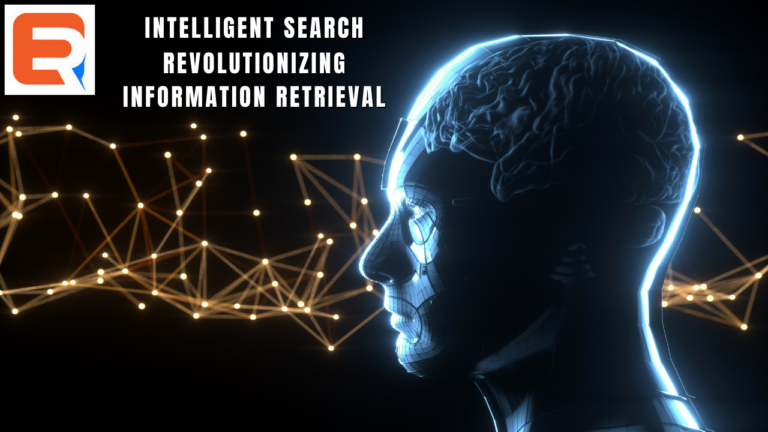The explosion of information on the internet has made finding relevant information a daunting task for many people. With the amount of data available, traditional search methods have become ineffective in providing accurate results. However, the emergence of intelligent search technology has revolutionized information retrieval, making it easier and more efficient for people to find what they need.
What is Intelligent Search?
Intelligent search refers to the use of artificial intelligence (AI) and machine learning algorithms to provide users with relevant and personalized search results. These algorithms are designed to understand the user’s search intent and context and provide results that match their specific needs.
Traditional search engines rely on keyword matching and indexing to provide results. This approach is limited in that it cannot understand the user’s intent or context. Intelligent search, on the other hand, goes beyond keyword matching to provide results that are more accurate, relevant, and personalized.
Intelligent search algorithms use natural language processing (NLP) and machine learning to analyze the user’s query, understand the intent behind it, and identify relevant entities and relationships. They then use this information to provide personalized and context-aware search results.
How Does Intelligent Search Work?
Intelligent search algorithms use a variety of techniques to provide relevant and personalized search results. These techniques include:
1. Natural Language Processing (NLP):
NLP is a branch of AI that focuses on the interaction between computers and humans through natural language. It helps computers understand and interpret human language and enables them to provide more accurate and relevant search results.
2. Machine Learning:
Machine learning algorithms use statistical models to learn from data and improve their performance over time. In the context of intelligent search, these algorithms learn from user behaviour and search patterns to provide more personalized and relevant results.
3. Semantic Search:
Semantic search involves analyzing the meaning and relationships between words to provide more accurate search results. This approach goes beyond keyword matching to understand the user’s intent and provide results that match their specific needs.
4. Personalization:
Intelligent search algorithms use data about the user’s search history, location, and behaviour to provide personalized search results. This ensures that the results are relevant to the user’s specific needs and interests.
Benefits of Intelligent Search
Intelligent search technology offers several benefits over traditional search methods. These include:
1. Better Search Results:
Intelligent search algorithms provide more accurate and relevant search results by understanding the user’s intent and context.
2. Personalization:
Intelligent search technology provides personalized search results based on the user’s search history, location, and behaviour. This ensures that the results are relevant to the user’s specific needs and interests.
3. Efficiency:
Intelligent search technology is more efficient than traditional search methods, as it reduces the time and effort required to find relevant information.
4. Accessibility:
Intelligent search technology makes it easier for people with disabilities to access information. For example, people with visual impairments can use voice search to find information.
5. Business Benefits:
Intelligent search technology can also provide business benefits, such as improved customer engagement and increased sales. By providing personalized search results, businesses can improve the customer experience and increase customer loyalty.
Applications of Intelligent Search
Intelligent search technology has several applications in various industries. Some of these include:
1. E-commerce:
E-commerce companies can use intelligent search technology to provide personalized search results and product recommendations to customers. This can increase customer engagement and sales.
2. Healthcare:
Healthcare providers can use intelligent search technology to provide personalized health information to patients. This can help patients make more informed decisions about their health.
3. Education:
Intelligent search technology can be used in education to provide personalized learning resources to students. This can help students learn at their own pace and improve their academic performance.
Conclusion :
Intelligent search technology has revolutionized the way we search for information. By leveraging artificial intelligence and machine learning algorithms, intelligent search can provide personalized and context-aware search results that are more accurate, relevant, and efficient than traditional search methods. Intelligent search has a wide range of applications in various industries, including e-commerce, healthcare, education, and customer service.




